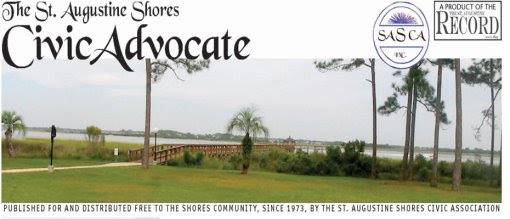In addition to various protections granted to buyers, the Condominium Act contains provisions protecting the rights of unit owners. These rights ensure that unit owners have the opportunity to be informed regarding the affairs of their condominium. Others are intended to prevent problems and provide remedies for existing problems. Some of these rights are summarized below.
Association Meetings
Unit owners are entitled to have an annual meeting. The date of the annual meeting for each association should be stated in its bylaws. Unit owners are also entitled to receive advance notice of all other association meetings, board of directors’ meetings, and committee meetings.
Depending upon the type of meeting, the noticing requirements contained in the Condominium Act may be met by the association posting advance notice of a meeting on the condominium property, and/or by mailing or delivering notice to each unit owner. The documents may also require additional notice.
In addition to the right to receive notice of meetings, unit owners also have a right to attend all unit owner meetings, board of directors’ meetings, and committee meetings ( except those meetings specifically exempted by the law). Owners also have the right to speak at these meetings on designated agenda items.
Elections
The election procedures provided in the Condominium Act require the use of secret ballots or voting machines, and do not permit elections to be conducted by proxy. The association may provide for alternate election procedures in its bylaws upon the approval of a majority of its total voting interests. These alternate procedures may provide for elections to be conducted by general or limited proxy.
Along with the right to elect directors in a condominium association, the Condominium Act also provides a procedure by which directors can be removed from office. This process is known as recall. Directors may be recalled from the board with or without cause by the vote or agreement in writing of a majority of the total voting interests.
Assessments
Unit owners cannot be required to pay assessments (regular assessments based on the adopted budget) less frequently than quarterly. Most associations collect monthly or quarterly assessments, the condominium documents should describe the frequency of collection, due dates and provide for late fees and interest on delinquent assessments.
If the board adopts a budget requiring an increase in excess of 115 percent of the assessments for the previous year, the board, upon receiving a petition of 10 percent of the voting interests, shall call a special meeting of the unit owners to consider an alternate budget. At this special meeting, unit owners can enact a new budget with the approval of a majority of the total voting interests. If the association is under developer control, a budget cannot impose assessments greater than 115 percent of the assessments for the previous year without approval of a majority of all the voting interests, including the voting interests of the developer.
At the end of each fiscal year, unit owners are entitled to receive a year-end financial report. Depending upon the size of the association and the amount of its annual revenues, a report of cash receipts and disbursements or more detailed financial statements, prepared in accordance with generally accepted accounting principles is required to be prepared. The association must either notify the owners that the report is available and provide a copy to the unit owner upon request (at no charge to the owner) or distribute the report directly to the unit owners.
Association Books and Records
Unit owners are entitled to have access to the official records of the association. These records must be maintained within the state. Within five working days after receipt of a written request, the association must make the official records available for a unit owner’s inspection. An association is required to maintain these records for a specified period of time. For example, minutes of any meeting and all accounting records must be maintained for at least seven years. Ballots, proxies, and other papers relating to voting by unit owners must be maintained for at least one year. Other records, such as a copy of the recorded declaration of condominium, must be retained permanently.
Miscellaneous
Unit owners may void certain types of contracts entered into by the developer in the name of the association. Subject to specific requirements, unit owners may also vote to cancel contracts entered into by unit owner controlled associations, such as a contract for cable television service assessed against the unit owners as a common expense.
Finally, the Condominium Act provides unit owners and their invited guests the right to peaceably assemble on the condominium property. This right is subject to reasonable rules and regulations, promulgated by the board of directors, pertaining to the use of the common elements and recreational facilities.
PART 1 INTRODUCTION
PART 2 GLOSSARY OF CONDOMINIUM TERMS
PART 3 CONDOMINIUM OWNERSHIP & OPERATION
PART 4 RESTRICTIONS & RESPONSIBILITIES
PART 5 PROTECTIONS FOR UNIT OWNERS
PART 6 THE FLORIDA DBPR ROLE
Enjoy this educational series and feel free to send your questions and comments to:
The Condo Communicator
"POLL QUESTION"
Should the Shores' Community Pool be open to all homeowners?
CLICK THIS LINK TO REGISTER AND VOTE
CLICK THIS LINK TO REGISTER AND VOTE
kkkkkkkkkkkkkkkkk
LATEST NEWS & NOTES
St. Augustine Shores Homeowner Association
St. Augustine Shores, Shores Service Corporation
St. Augustine Shores Condominium
Conquistador Condominium, Greens Condominium
Greens II Condominium, Fairview Condominium
Casa Bella Condominium, St. Augustine Shores News
CLICK BELOW FOR YOUR SHORES COMMUNITY NEWS


